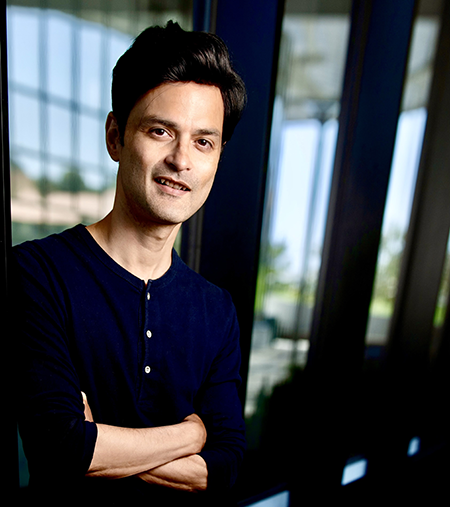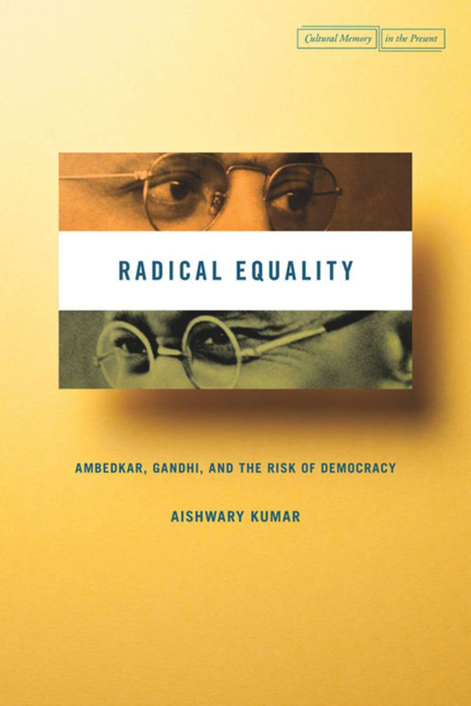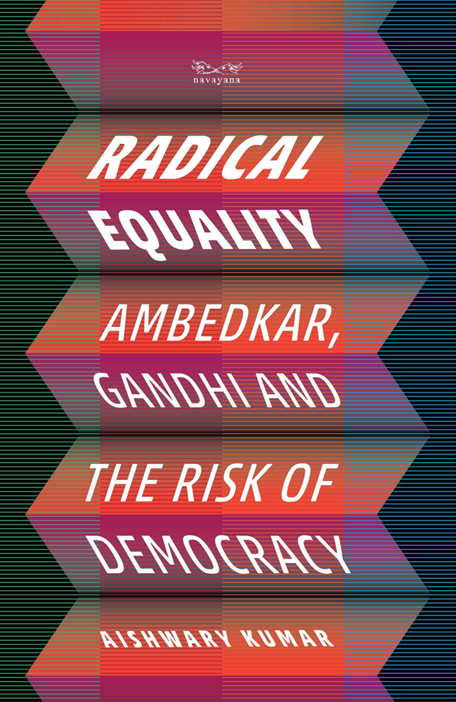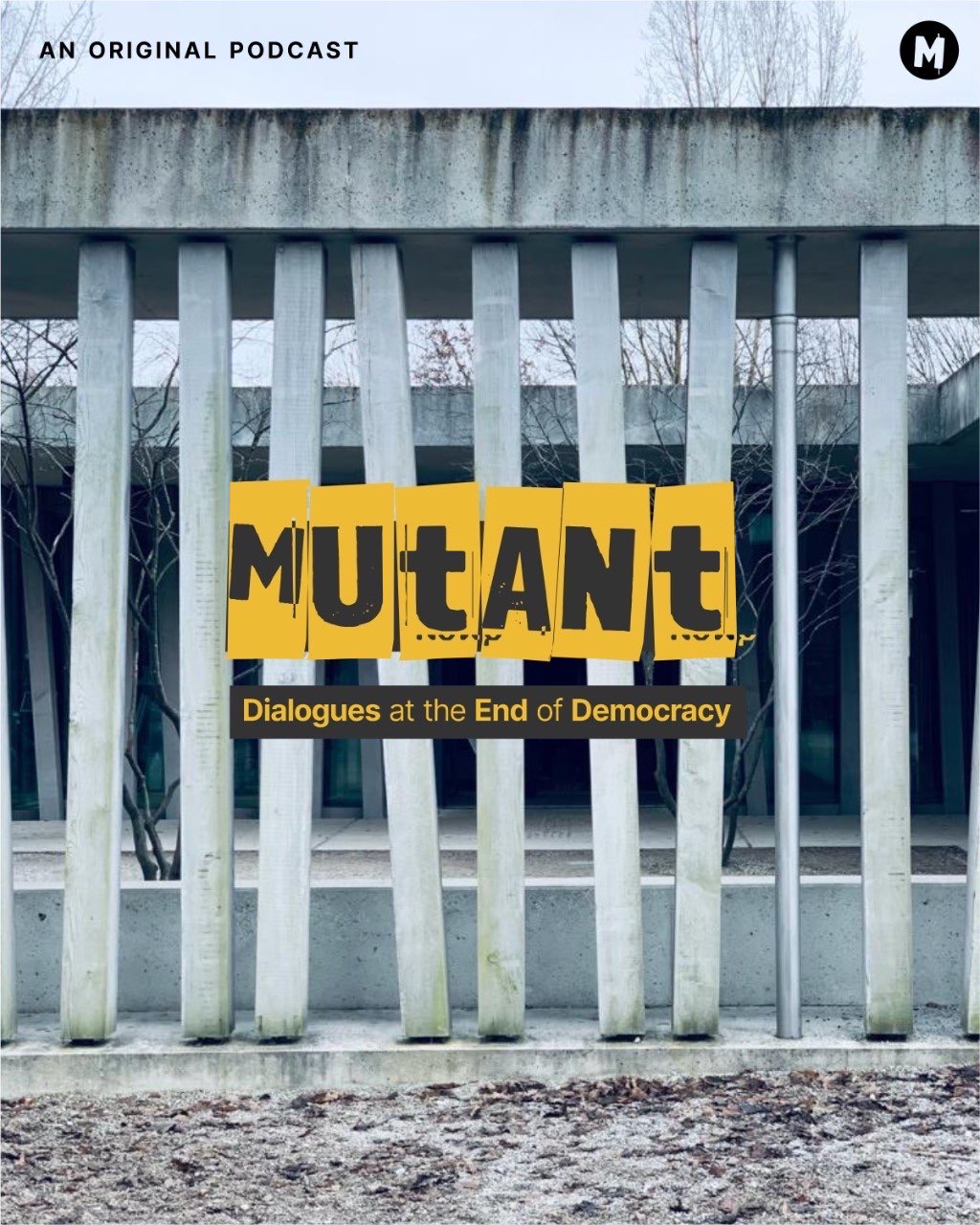Director
Director
 Aishwary Kumar is Associate Professor of History and Director of The Ahimsa Center for the study of Political Nonviolence. He is also Director of The Democracy Institute, where he leads The GIFT Project (Global Inquiries in Freedom & Tyranny) and the American Institutions Common Core.
Aishwary Kumar is Associate Professor of History and Director of The Ahimsa Center for the study of Political Nonviolence. He is also Director of The Democracy Institute, where he leads The GIFT Project (Global Inquiries in Freedom & Tyranny) and the American Institutions Common Core.
Kumar is a scholar of democracy and liberalism. He works in the fields of intellectual history and political theory, with a focus on the global lineages of modern political thought and the moral and constitutional life of the modern democratic experiment. He holds a BA from University of Delhi, an MA from Jawaharlal Nehru University, New Delhi, and a PhD. from Trinity College, University of Cambridge. Primarily concerned in his research and teaching with the relationship between human freedom and political violence, Kumar has two distinct sets of philosophical preoccupations. The first engages the moral psychological questions raised by the history of liberalism and democratic institutions and shaped by the vicissitudes of inequality and citizenship in the Global South. The second concerns the relationship between epistemology and politics; that is, the nature of truth, identity, and political faith as they are transformed by human aspirations, conflict, and disappointments.
Kumar’s writings and teaching have focused on a wide spectrum of issues in modern political history, moral and political philosophy, constitutionalism and dissent, empire and anticolonialism, and the global trajectories of political nonviolence before and after neoliberalism. He has also written on the philosophy of action across a range of revolutionary, anti-caste, and anti-war traditions, the postcolonial struggle with the minority as moral and social form, and the quest for abolition and epistemic justice in Indian and Atlantic thought. His first book, Radical Equality: Ambedkar, Gandhi, and the Risk of Democracy (Stanford, CA: Stanford University Press, 2015) examined the relationship between religious conceptions of freedom and lineages of democratic disobedience in modern anticolonial traditions, with an emphasis on the transformation of theological and liberal notions of authority and the law over the last two centuries. His forthcoming book The Neodemocratic Condition: Freedom and Violence after Neoliberalism is supported by an award from the Academy of Sciences (AKS) in Seoul, South Korea.
Kumar's work has been supported by institutions in Austria, Germany, and the United Kingdom. Between 2007 and 2013, he was as an associate fellow of the Centre of South Asian Studies at Cambridge University, where he had earlier studied as a Jawaharlal Nehru Scholar for his PhD. In 2006-07, he was awarded the Rouse Ball Fellowship in Modern History at Trinity College, Cambridge. In 2007, he moved to the United States to join the Department of History at Stanford University, where he taught for 11 years until 2018 and directed the Undergraduate Majors Program in History, Philosophy, and the Arts (HPA) from 2013 to 2017.
Kumar’s teaching and research are animated by the belief that the modern university must combine specialized research of greatest rigor with a commitment to widest possible access to the defining ideas that will shape our century. Along this vector of his scholarship, his writings on liberalism and cruelty, technology and planetary neglect, the coming struggle over constitutions and civil rights, and the structure of political violence and radical nonviolence in the neoliberal world have appeared widely in both print and digital media. Among these are the podcast Mutant: Dialogues at the End of Democracy (Apple Podcast | Spotify, 2023-24).
In Fall 2013, Kumar was elected fellow of the research group on Global Histories of Enlightenment at the Lichtenberg Kolleg: Göttingen Institute of Advanced Study, Germany. In 2014, research for his first book was supported by Re: Work in Berlin, where he spent the year as Guest of the Director. In 2017, Kumar returned to Europe as a Senior Fellow in Human Rights, Constitutional Politics, and Religious Diversity at the Lichtenberg Kolleg: Göttingen Institute of Advanced Study, Germany. In 2019, he was a senior fellow at the IWM: Institute of the Human Sciences in Vienna, Austria. In 2019-20, he was a visiting professor in the Department of History of Consciousness at UC Santa Cruz. He has been a contributing member of the Committee on Historical Teleology at the University of Helsinki, Finland from 2011 to 2014. He was a fellow of the Working Group on International Order at the Hoover Institution in 2018-19 and a senior fellow in Stanford Global Studies from 2020 to 2022. He founded and led the global workshop series on “Civility, Cruelty, Truth” at the Stanford Humanities Center between 2011 and 2015.
Kumar is the co-founder and member of the Executive Board of the Institute for New Global Politics, a next-generation thinktank based in Silicon Valley, California focused on developing a global perspective on the human condition and its futures, educating the next generation of thinkers, and creating realizable political solutions that bring together citizens, policymakers, and governments in a planetary endeavor. Between 2009 and 2014, Kumar served as the Fellow-elect of the Teagle Foundation's National Forum for the Future of Liberal Education.
In addition to The Neodemocratic Condition, Kumar is currently working on two related books in the history of political thought. The first, titled The Sovereign Void: Ambedkar’s Critique of Violence, examines the global genealogies of radical nonviolence and the struggle with notions of force and sovereignty across epistemological, juridical, and revolutionary traditions. Its companion study on democratic judgment takes as its starting point the Obama Presidency and its constitutional aftermath. This work is titled After Political Faith: Disenchantment, Disappointment, Democracy. Kumar’s essays have appeared in a wide range of specialized academic journals, including Modern Intellectual History, Public Culture, Social History, and Contemporary South Asia. He has also contributed essays for several volumes including The Oxford Handbook of Comparative Political Theory (2020) and The Oxford Handbook of the Global South (forthcoming).
Fall 2024
- HST3340 - The Faces of Freedom | American Institutions and Ideals (GIFT Common Core Seminar)
- HST4433 - Political Nonviolence and Democratic Visions
- HST4000 - Special Topics in Global Political Thought
Spring 2024
- CLS4490 - Law and Nonviolence | Capstone Seminar
- HST4431 - What is Freedom? | A Philosophical History
Fall 2023
- HST4433 - Political Nonviolence and Democratic Visions
- HST3340 - The Faces of Freedom | American Institutions and Ideals (GIFT Common Core Seminar)
Articles and Chapters
- A Constellation of Two | Gandhi and His Elusive Conquest of Violence (Stanford, CA: Stanford University: The Wire, 2022).
- A Jurisprudence of Neglect | On the Logic of Political Cruelty (Faith in the World: Post-Secular Readings of Hannah Arendt (Berlin & Chicago), 2021).
- Of Faith in Equality: Toward a Global Measure (Radical Equality: Ambedkar, Gandhi, and the Risk of Democracy, 2015).
- Democratic Crises, Revolutions, and Civil Resistance | A Prehistory of Resentment (The Bloomsbury History of Democracy, Volume 5: Democracy in the Age of Empire, 2021).
- Immortality in Politics (Shoumyabrata Choudhury, Ambedkar and Other Immortals, 2018).
- A Revolutionary Constitutionalism (The Caravan, 2019)
- Imagination and the Return of Political Freedom | Beginnings (Imagination and the Returns of Political Freedom, 2019)
- War without End | Ambedkar, Time, and Stasis (Oxford Handbook of Comparative Political Theory, 2020)
- What is Dalit Studies | A Review (Indian Economic and Social History Review, 2019)
- Democracy, Populism, and Polytheism (The Caravan | Working Group on Global Order, 2018)
- In the Void of Faith: Sunnyata, Sovereignty, Minority (Secularization, Tolerance, and Democratic Politics in South Asia, 2018)
- Can the Sovereign gift? Gandhi's Maryada and the Moral Law (Contemporary South Asia, 2018)
- Ambedkar's Maitri
- Satyagraha and the Place of the Animal: Gandhi's Distinctions (Social History, 2014)
- The Ellipsis of Touch, Gandhi's Unequals
- AMBEDKAR'S INHERITANCES (Modern Intellectual History, 2010)
- ON MORAL CRUELTY: GANDHI, DIGNITY AND RESENTMENT by Sanjeev Kumar (Ph.D) and Aishwary Kumar
Book
Radical Equality: Ambedkar, Gandhi, and the Risk of Democracy (Stanford, CA: Stanford University Press, 2019: New Delhi: Navayana, 2019).
Interviews & Essays
- Your Cruelty Does Not Speak: Democracy and the Word, a dialogue with Payal Puri, The New Paradigm, Institute of New Global Politics, March 2023.
-
Political Vandalism and Moral Indifference: Democracy after Neoliberalism, an interview with Huzaifa Omair Siddiqi, The Wire, June 2022.
-
Gandhi and his Elusive Conquest of Violence, The Wire, January 2022.
-
A Mirror called Freedom, Deccan Herald, August 2021.
-
Ambedkar is a Constitutionalist only because he is a Revolutionary, an interview with Appu Ajith, The Caravan, October 2019
-
The Ahimsa to Come: Hinduism’s Struggle to be Modern, The Hindu, February 2013.
Podcast & Radio (Available on iTunes)
-
Mutant: Dialogues at the End of Democracy, Institute for New Global Politics & Spotify 2023.
-
The Radical Democracy Movement, Philosophy Talk, July 2016.
-
Ambedkar, Arendt, Freedom, Entitled Opinions, KZSU Stanford, April 2016.
-
Gandhi and the Ordinariness of Violence, Entitled Opinions, KZSU Stanford, April 2016.
- The Neodemocratic Condition, Entitled Opinions, KZSU Stanford, December 2022.
Video (Available on YouTube)
-
Between Freedom and Neglect: The Neodemocratic Condition, The Wire, June 2022.
-
On Moral Cruelty: Gandhi, Dignity, and Resentment, Gandhi Lecture Series, University of Delhi Gandhi Study Circle, January 2022.
-
Ambedkar and the Futures of Democracy, The Wire, April 2021.
-
Free Radical: Gandhi’s Politics of Risk, Algebra Arts & Ideas Club, Gurgaon, September, August 2019.
-
Critical Mass: Why India is Turning Against Itself, Algebra Arts & Ideas Club, Chennai, August 2019.
-
Radical Equality: Gandhi and Ambedkar in the Making and Unmaking of India, Algebra Arts & Ideas Club, Hyderabad, April 2019.
-
The Struggles of Liberal Democracy, Philosophy Talk at Stage Werx Live, San Francisco, June 2016.
-
What Is Intellectual History and Why Does It Matter? with Robert Harrison and Russell Berman, Stanford Politics, May 2016.



